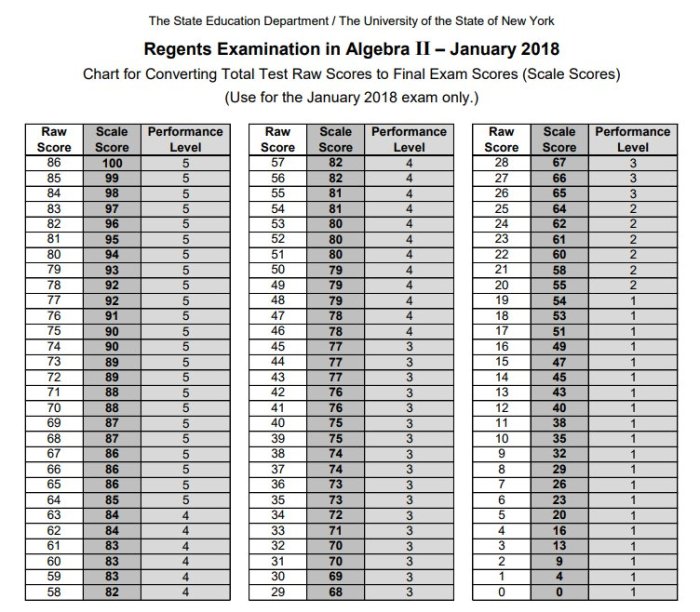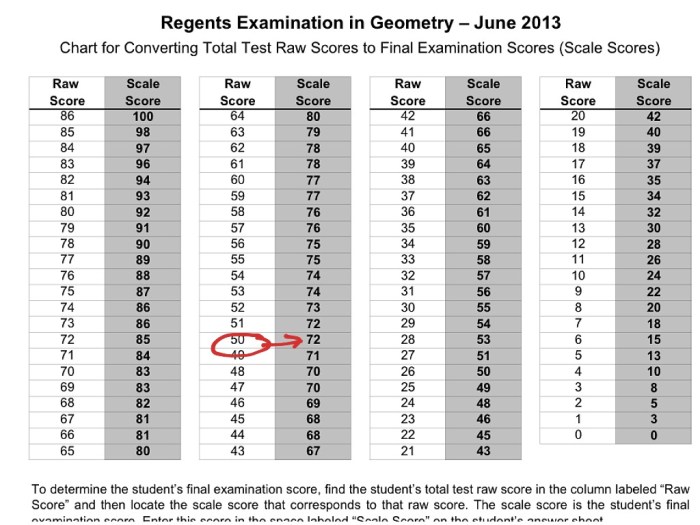The Earth Science Regents 2019 Answers provide a comprehensive overview of the exam, including its structure, content, and scoring system. This guide delves into the key concepts and topics covered in the exam, offering insights into their importance and relevance to Earth science.
Furthermore, the guide analyzes multiple-choice and constructed response questions, providing strategies for answering them effectively. It also discusses laboratory exercises, highlighting their purpose and significance. Additionally, the guide offers effective preparation strategies, including guidance on studying, reviewing, and practicing.
1. Earth Science Regents 2019 Overview
The Earth Science Regents exam for 2019 was a comprehensive assessment of students’ understanding of Earth science concepts and principles. The exam consisted of 100 multiple-choice questions and six constructed response questions, covering a wide range of topics in Earth science, including Earth’s systems, the atmosphere, the hydrosphere, the geosphere, and astronomy.
The multiple-choice questions were designed to test students’ knowledge of Earth science facts, concepts, and theories. The constructed response questions required students to demonstrate their ability to apply their knowledge of Earth science to real-world situations and to explain their reasoning.
The Earth Science Regents exam is scored on a scale of 0 to 100. A score of 65 or higher is considered passing.
2. Key Concepts and Topics
The key concepts and topics covered in the Earth Science Regents 2019 exam included:
- Earth’s systems
- The atmosphere
- The hydrosphere
- The geosphere
- Astronomy
These concepts and topics are essential for understanding the Earth’s processes and systems, and they are fundamental to the study of Earth science.
3. Multiple Choice Questions

The multiple-choice questions on the Earth Science Regents 2019 exam were designed to test students’ knowledge of Earth science facts, concepts, and theories. The questions covered a wide range of topics, including:
- Earth’s structure and composition
- The atmosphere and its processes
- The hydrosphere and its processes
- The geosphere and its processes
- Astronomy and the solar system
To answer the multiple-choice questions effectively, students needed to have a strong understanding of Earth science concepts and principles, as well as the ability to apply their knowledge to new situations.
4. Constructed Response Questions
The constructed response questions on the Earth Science Regents 2019 exam required students to demonstrate their ability to apply their knowledge of Earth science to real-world situations and to explain their reasoning. The questions covered a variety of topics, including:
- Interpreting data from graphs and charts
- Designing and conducting experiments
- Analyzing and evaluating scientific evidence
- Formulating and testing hypotheses
To answer the constructed response questions successfully, students needed to have a strong understanding of Earth science concepts and principles, as well as the ability to think critically and communicate their ideas clearly.
5. Laboratory Exercises: Earth Science Regents 2019 Answers

The laboratory exercises included in the Earth Science Regents 2019 exam were designed to give students hands-on experience with Earth science concepts and principles. The exercises covered a variety of topics, including:
- Identifying and classifying minerals
- Measuring the density of rocks
- Constructing a topographic map
- Observing the effects of weathering and erosion
The laboratory exercises were an important part of the Earth Science Regents exam, as they allowed students to apply their knowledge of Earth science concepts and principles to real-world situations.
6. Preparation Strategies
To prepare for the Earth Science Regents 2019 exam, students should:
- Review the Earth Science Regents syllabus
- Attend class regularly and take notes
- Complete all homework assignments
- Study for the exam using a variety of resources, such as textbooks, review books, and online resources
- Take practice exams to familiarize themselves with the format and content of the exam
By following these preparation strategies, students can increase their chances of success on the Earth Science Regents exam.
7. Additional Resources
In addition to the resources listed above, there are a number of other resources that can be helpful for preparing for the Earth Science Regents 2019 exam. These resources include:
- The New York State Education Department’s website
- The College Board’s website
- The Princeton Review’s website
- The Kaplan Test Prep website
These resources provide a variety of materials, such as practice exams, study guides, and online courses, that can help students prepare for the Earth Science Regents exam.
Query Resolution
What is the format of the Earth Science Regents exam?
The exam consists of multiple-choice questions, constructed response questions, and laboratory exercises.
What are the key concepts covered in the Earth Science Regents exam?
Key concepts include Earth’s systems, the atmosphere, hydrosphere, geosphere, and biosphere.
How can I effectively prepare for the Earth Science Regents exam?
Effective preparation involves studying the course material, reviewing practice questions, and completing laboratory exercises.